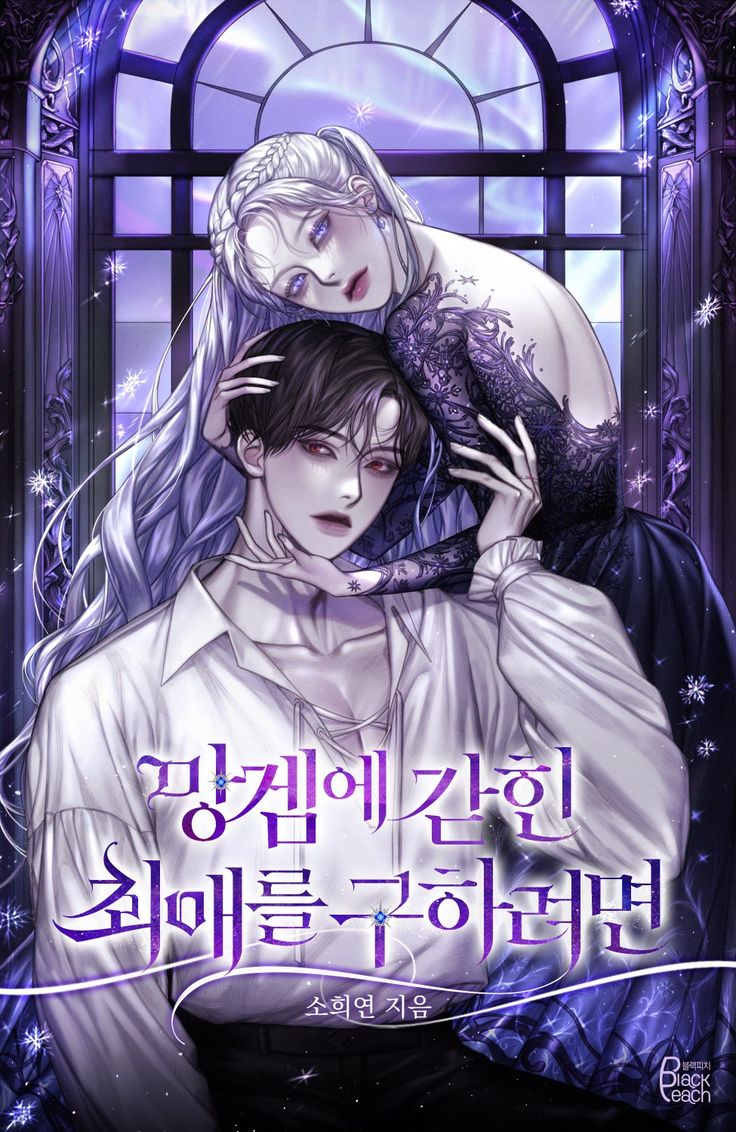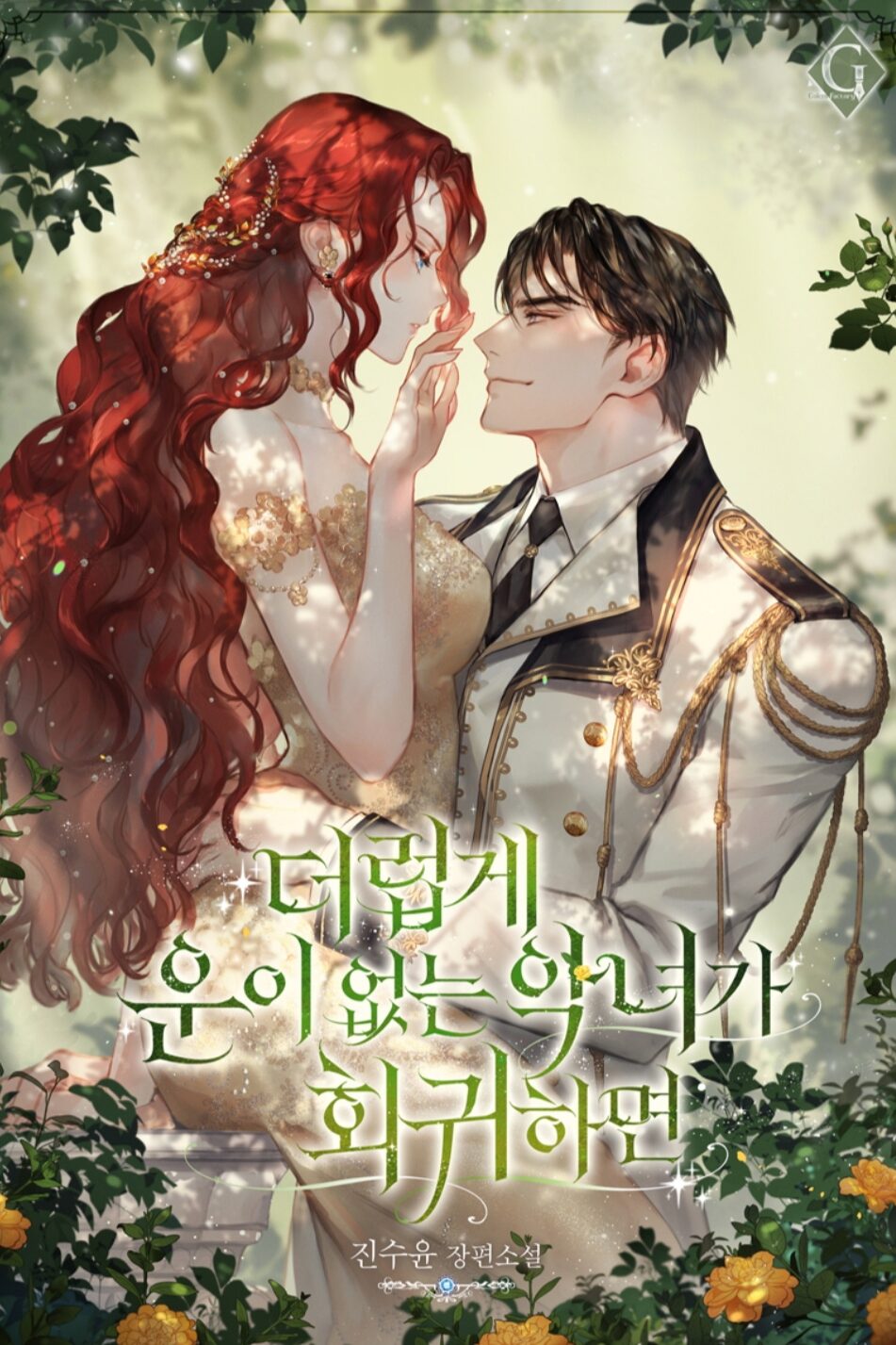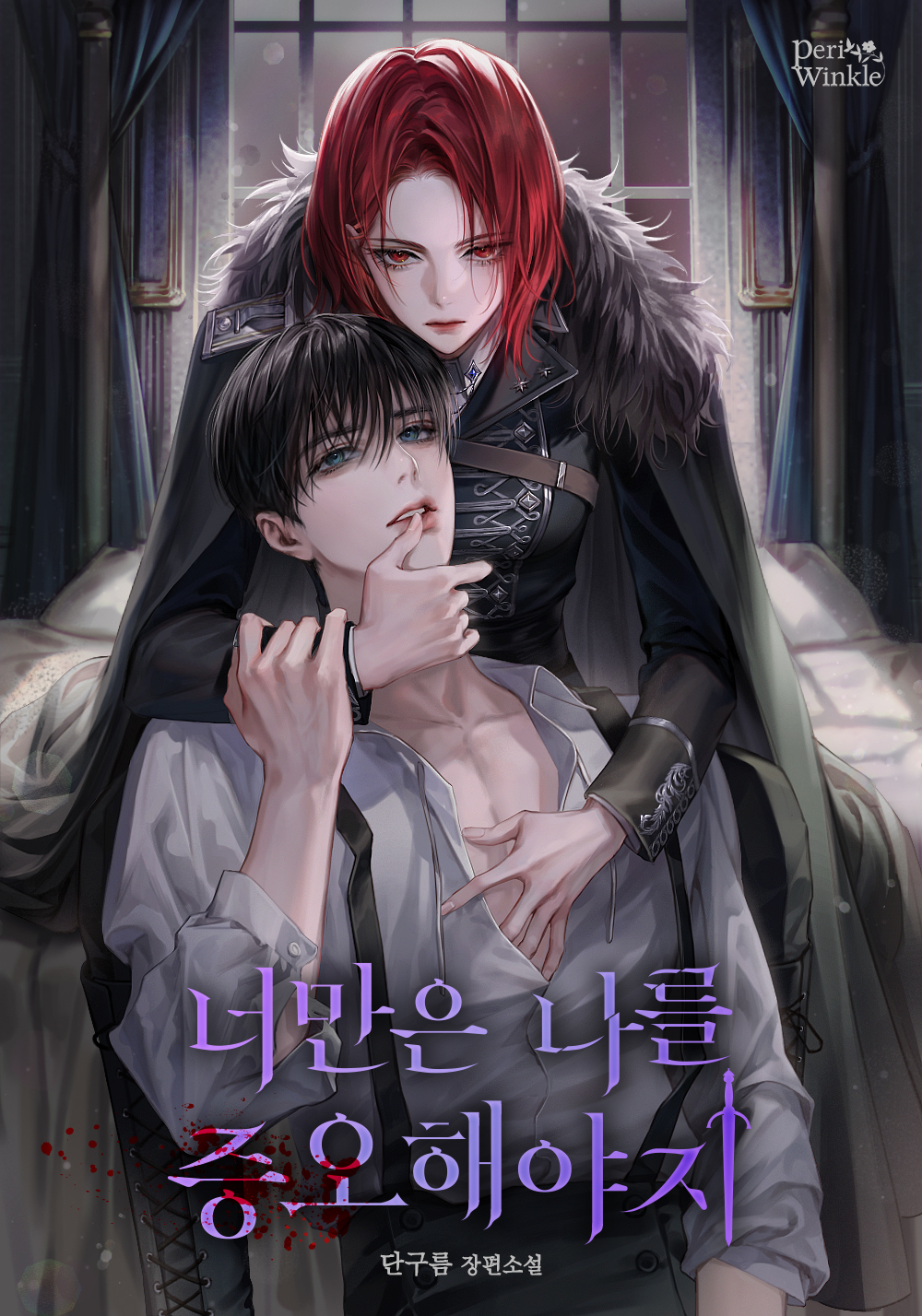Chapter 1
‘What is a Saint?’
A wanderer in the wilderness asked about the value of a Saint.
‘A symbol of peace and love, a woman of the purest kind in this world, possessing a great spirit of sacrifice, is she not?’
Then a shepherd in an empty courtyard replied.
Who could refute this great insight?
Saint. Saint. Holy Mother.
And beneath them, the Saintess.
—From the Book of Caner’s Martyrdom 14:1-7
🌻🌻🌻
Plip. Dewdrops trickled down white petals. The white lily was the symbolic flower of the Canerian faith. Therefore, fragrant lilies were always present wherever followers of Caner resided, especially within the temple. This prayer room, too, was overflowing with the white flowers.
Among the flowers, freshly cut and arranged that morning, stood a statue of the Goddess Caner. Sunlight streaming through the narrow window illuminated the dust motes, transforming these insignificant specks into shimmering golden particles that floated around the statue.
The silence was so profound that even the slow movement of the sunlight appeared as a disturbance. Kneeling beneath the shadow of the benevolent goddess was a woman.
‘Oh Goddess.’
The woman called upon the deity she believed in, as she did every day. But as always, the oppressive silence remained unbroken, like an impenetrable fortress.
“…Grant me peace.”
Although she knew better, the woman couldn’t tear her eyes away from the statue. This was the only thing she could do.
In the stillness of the prayer room, where nothing moved, it was ultimately the woman herself who disturbed the tranquility, her body sworn to the Goddess. She pulled at the veil that shimmered before her eyes.
As the woman blinked, her eyelashes fluttered like a golden silken veil. Her blue eyes, gazing up at the statue, resembled the clear blue sky of a windswept field. These eyes complemented her long, golden tresses.
She was a beauty, with a slender frame and skin as white as a sheet of paper. Her small face was so pale that it was almost indistinguishable from the surrounding lilies. The woman, who had kept her head raised, finally lowered her gaze.
Beautiful golden hair, seemingly spun from gold thread, and blue eyes resembling sapphires. Even the glorious shoulder mark bestowed upon only the four greatest of the Canerian faith.
The meaning of these three signs was clear.
‘Ninia, the 48th Saintess.’
A baby who cried her first cry under a starlit sky, on a moonless night. The Saintess, who looked upon the suffering beings of this land with a great spirit of sacrifice, was her.
Just a month ago, that was the case.
‘…Not anymore.’
A product of benevolence, a symbol of sacrifice. Ninia’s duty had ended with the final chapter, her life forfeit.
For the Saintesses of the Canerian faith, there was always the same beginning and the same end.
The beginning was always the Saint’s temple.
Within the Piechen Empire stood a temple built by the Saint who lit the temple’s torch when the world was in chaos and not a single ray of light could be found. All Saintess candidates were raised there until they fulfilled their purpose.
‘What is the value of a Saintess?’
Ninia grew up hearing these words repeated constantly in the temple. She obeyed the High Priest and the other priests who raised her under the grace of God. Sacrifice as a Saintess was always a given; everything was the will of God. The day that should have been her last was no different.
‘Caner’s Day.’
A sacred anniversary commemorating the day the Goddess first descended upon the chaotic earth. This three-day festival marked its 996th year. Ninia, too, appeared before countless people as the Saintess.
She blessed the people with a benevolent smile. The final day of the festival was ‘Caner’s Day.’ At midnight, the hour of the Goddess’s first descent, Ninia stood on the temple altar.
People didn’t know. That a Saint was meant to be a sacrifice. But they did know. That a Saint’s worth lay in sacrifice.
‘Solidify your existence with sacrifice.’
As the High Priest’s command rang out, two High Priests, symbolizing two serpents, took their places beside her. Their purpose was to forcibly extract Ninia’s holy power. Standing on the altar, Ninia looked around. Below her feet stood the Emperor of the Piechen Empire, kings of other nations, and other nobles.
The commoners didn’t know that the Saintess was offered to God, but the nobles were well aware of this.
They believed that witnessing the Saintess’s final moments was the closest they could get to God. Their positions were arranged according to the amount they had donated to the church.
‘Oh Goddess, we offer your flower as a sacrifice.’
The High Priests brutally extracted Ninia’s holy power. Ninia struggled in agony, a pain akin to having her bones shattered and reassembled, her skin flayed with knives.
The extracted holy power shimmered with a brilliant, beautiful light, drawing gasps of awe from those who watched.
Finally, unable to endure any longer, her body collapsed to its knees. Ninia slumped sideways, and her ragged breaths ceased. One of the priests approached her to confirm that all her holy power had been depleted.
‘Not a trace remains.’
The priest reported to the High Priest. With this, the grandest festival came to an end. The Saintess’s life also ended at this moment.
The High Priest and the dignitaries turned away. The special spectacle, occurring at long intervals, had ended, and they were about to depart. However, their steps halted before they crossed the threshold.
‘Gasp…!’
The High Priest frowned at the priest’s irreverent gasp. Then, the faces of all who had turned their backs were painted with shock. The Saintess, who should have been dead, was rising unsteadily to her feet.
Ninia stumbled forward repeatedly. And she rose again. This happened dozens of times. A chilling silence descended upon the hall.
Following this, Ninia was confined to the prayer room in the spire on the High Priest’s orders. The temple was discussing what to do with her. However, they hoped she would die on her own before they reached a conclusion.
Unfortunately, Ninia was still breathing.
‘I should have died then.’
When she first heard that the day of her sacrifice had been decided, what had she felt?
She had answered with her usual peaceful expression, saying she understood. Her first thought had been that it was rather soon. As soon as the priest who delivered the news left, the smile vanished from her face.
‘Was I relieved, or was I sad?’
She couldn’t quite remember. Ninia looked down at her pale hands. She was alive, but things weren’t the same.
After all her holy power was drained, there was definitely something wrong with her body. Even simple daily routines, like sleeping and waking up in the prayer room, were exhausting. But it was better to be awake.
Every night, she was plagued by nightmares of the day she was offered as a sacrifice. The noble spectators, their eyes bloodshot, applauded her death.
The memory of the agonizing pain, enough to witness death, would never fade. It was etched into her body and mind.
‘What sin have I committed?’
She had lived her life, given in the name of the Goddess, to the fullest. She could swear she had practiced the Goddess’s teachings without shame.
Among all the Saintesses offered as sacrifices, Ninia was the only one to survive. Perhaps it was her sin that she survived that day.
“…What will become of me now?”
Ninia huddled against the wall, curling up. Now, she was no longer a Saintess, but an ordinary person. But this, too, was a problem.
The temple could no longer directly intervene with Ninia, who was now separated from the Canerian faith.
Furthermore, the process of her sacrifice had been witnessed by not only the temple but also the Emperor of the Piechen Empire and dignitaries from other nations, making it a large-scale event. It had become a raging fire that couldn’t be extinguished by a single decision.
‘Why am I still alive?’
Even she questioned it. Ninia grasped her hair and examined the ends. The tips of her hair, which should have been a vibrant platinum blonde, were as white as a weasel’s tail.
Ninia always thought that the spreading, pure white was closer to the color of death than the pitch-black darkness.
The embrace of God meant death.
Therefore, God was always pure white.





